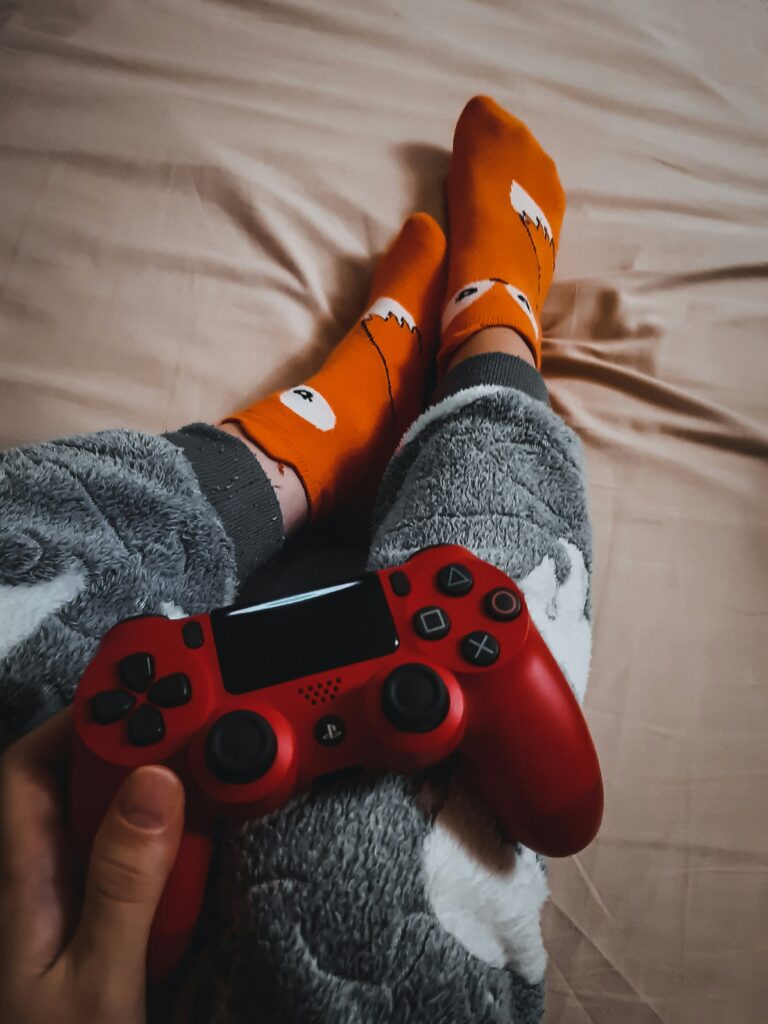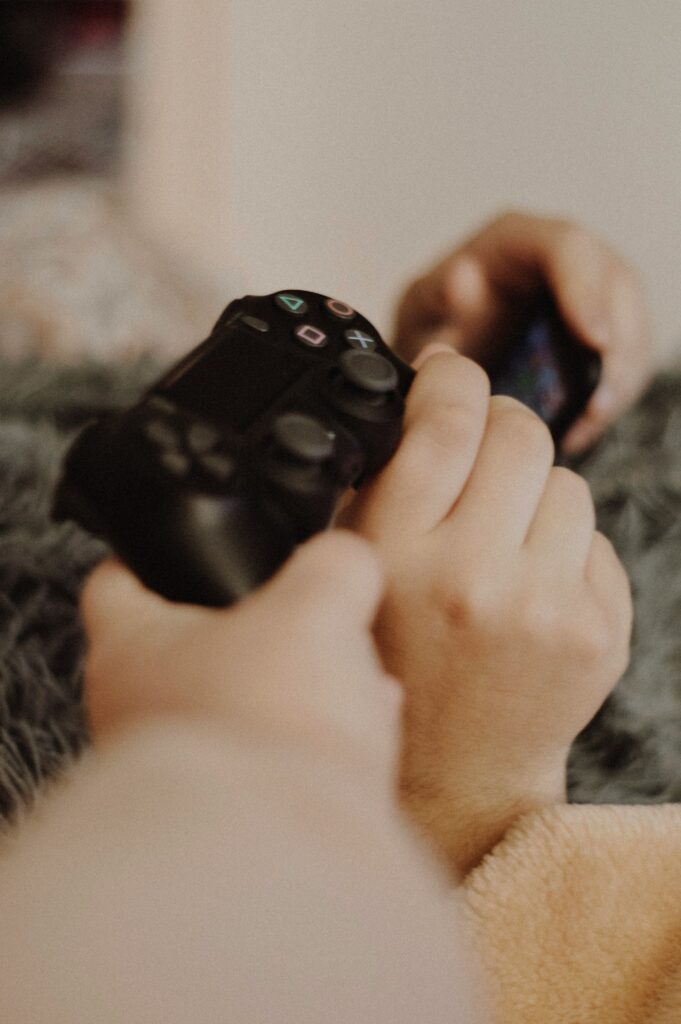In recent years, gaming has transformed from a casual pastime into a recognized tool for improving mental health and emotional resilience. Once considered purely recreational, video games are now being studied for their therapeutic benefits — from stress relief and mood regulation to building social connections and sharpening cognitive skills.
The conversation around gaming and mental health is evolving. Instead of focusing only on the potential downsides, more people are starting to see how mindful, balanced gaming can improve mental well-being.

Whether you play puzzle games on your phone, immersive role-playing games on a console, or competitive titles online with friends, the impact can go far beyond entertainment.
This article explores how gaming activities can support mental health, what the research says, and why “play” might be one of the most underrated forms of self-care.
The Importance of Play for Mental Health
Play is not just for children. Psychologists have long emphasized that adults also need playful activities to stay emotionally balanced. Games provide structure, challenge, and joy — all of which can counteract the monotony and pressures of daily life.
One well-known developmental psychologist once explained that “the opposite of play is not work, it’s depression.” In this sense, games aren’t a distraction but a way to unlock creativity, curiosity, and resilience.
When we play, our brains experience what researchers call a state of flow — a sense of being fully absorbed in an activity. This state can reduce intrusive thoughts, ease stress, and give a sense of accomplishment, even in small victories. That sense of achievement is vital for building confidence and lifting mood, especially for people struggling with anxiety or depression.
How Gaming Activities Support Mental Health
1. Stress Relief and Relaxation
Gaming offers a safe space to escape real-world stressors. Immersive games allow players to shift their focus away from worries and immerse themselves in problem-solving, storytelling, or creative expression.
For many, gaming provides the same type of relaxation as reading a book or watching a movie — but with the added benefit of active participation. Unlike passive media, games engage the mind, requiring attention and decision-making, which can redirect stress into focus.
2. Boosting Mood and Motivation
The structure of most games is built around rewards. Completing levels, solving puzzles, or overcoming challenges can trigger the release of dopamine, the brain’s “feel-good” neurotransmitter. This neurochemical reward system helps elevate mood and reinforces motivation.
Small in-game achievements can also translate into greater confidence outside of the game. Players often feel a sense of progress, which can counter feelings of stagnation or helplessness that sometimes accompany depression or burnout.
3. Building Social Connections
Loneliness and social isolation are growing concerns for mental health worldwide. Online multiplayer games, co-op challenges, and even casual mobile games create opportunities for connection.
Players can collaborate, compete, or simply chat while gaming, forming friendships that cross geographical boundaries. For people who find in-person socializing difficult, gaming can be a bridge to meaningful relationships.
LAN parties, co-op campaigns, or even quick online matches provide shared experiences that strengthen bonds. In fact, couples and friends often find that playing cooperative games improves teamwork and communication.
4. Enhancing Cognitive Skills
Research shows that gaming can improve mental flexibility, memory, and problem-solving abilities. Strategy and role-playing games, for example, encourage players to plan ahead, manage resources, and adapt quickly to changing circumstances.
Puzzle-based games enhance concentration and pattern recognition, while fast-paced action games improve reaction times and hand-eye coordination. These cognitive benefits can be particularly helpful for maintaining mental sharpness over time.
5. Creating Safe Outlets for Emotions
Many games allow players to explore emotions in a safe and controlled environment. Story-driven games can help players process grief, anger, or fear through narrative, while competitive games can provide an outlet for frustration or stress.
This ability to “channel” emotions into gameplay makes gaming a therapeutic tool for emotional regulation. It creates distance between a player and their stressors while still allowing them to process and express their feelings.
Personal Growth Through Gaming
Many adults rediscover gaming later in life and find it surprisingly transformative. Even those who didn’t grow up playing video games can benefit. Learning new mechanics, practicing patience, and accepting failure in a virtual world can build resilience for real-life challenges.

Couples often report that co-op games strengthen their relationships by teaching them to collaborate under pressure. Families bond through fun party games. Friends reconnect through online platforms when meeting in person isn’t possible.
Gaming also fosters creativity. Sandbox-style games that allow building, designing, or storytelling can be especially fulfilling, as they encourage self-expression without judgment.
What Research Says About Gaming and Mental Health
Over the past decade, scientific interest in gaming has grown significantly. Researchers have examined how commercial games — not just specialized therapeutic ones — can support mental health.
-
A 2021 review suggested that commercial video games may help reduce symptoms of depression and anxiety, offering a potential supplement to traditional therapy.
-
A 2023 study found that video gaming enhanced mental flexibility, planning, working memory, and problem-solving skills. These improvements were most notable in players who engaged regularly but not excessively.
-
Research on nostalgia in gaming showed that titles which remind players of childhood can trigger positive memories and emotional comfort, acting as a mood stabilizer.
-
Social research highlights that multiplayer gaming builds community and reduces loneliness, especially during isolating events such as the global pandemic.
While gaming is not a substitute for therapy or medical treatment, it is increasingly recognized as a valuable component of holistic mental health care.
Balancing Gaming with Mental Health
While the benefits are clear, moderation is essential. Excessive gaming, especially when it interferes with sleep, relationships, or responsibilities, can have negative effects. The key is mindful play.
Here are some tips for healthy gaming:
-
Set time boundaries: Decide how long you’ll play before starting.
-
Choose games intentionally: Pick titles that align with your goals — relaxation, creativity, or social connection.
-
Take breaks: Give your eyes, body, and mind time to rest.
-
Mix activities: Balance gaming with exercise, socializing, and outdoor time.
-
Stay self-aware: Notice if gaming is helping you feel better or if it’s becoming an avoidance tool.
When approached mindfully, gaming becomes an empowering activity rather than a distraction.
Gaming Activities That Boost Mental Health
Not all games offer the same benefits. Different types of gaming activities support mental health in unique ways:
-
Puzzle and strategy games: Excellent for focus, problem-solving, and stress relief.
-
Adventure and role-playing games: Great for storytelling, empathy, and emotional exploration.
-
Co-op and multiplayer games: Build connection, teamwork, and social support.
-
Creative sandbox games: Encourage imagination, creativity, and a sense of freedom.
-
Casual mobile games: Provide quick stress relief and short bursts of joy during busy days.
By exploring a variety of genres, players can find what resonates most with their emotional needs.
The Takeaway
Gaming isn’t just a source of entertainment—it can also be a valuable tool for supporting mental health. From easing stress and lifting mood to strengthening social connections and sharpening cognitive skills, games offer benefits that go far beyond fun.
The key is approaching play with balance and intention. By choosing games thoughtfully and maintaining healthy habits, gaming can become a meaningful form of self-care. Whether it’s solving puzzles before bed, teaming up with friends online, or immersing yourself in story-driven adventures, gaming can foster joy, connection, and resilience.
If you want guidance on incorporating activities that support your mental well-being into your daily routine, getting started with Ciranox is simple. Just fill out our sign-up form, and our team will help you create a personalized plan to boost your mental wellness and overall health.




